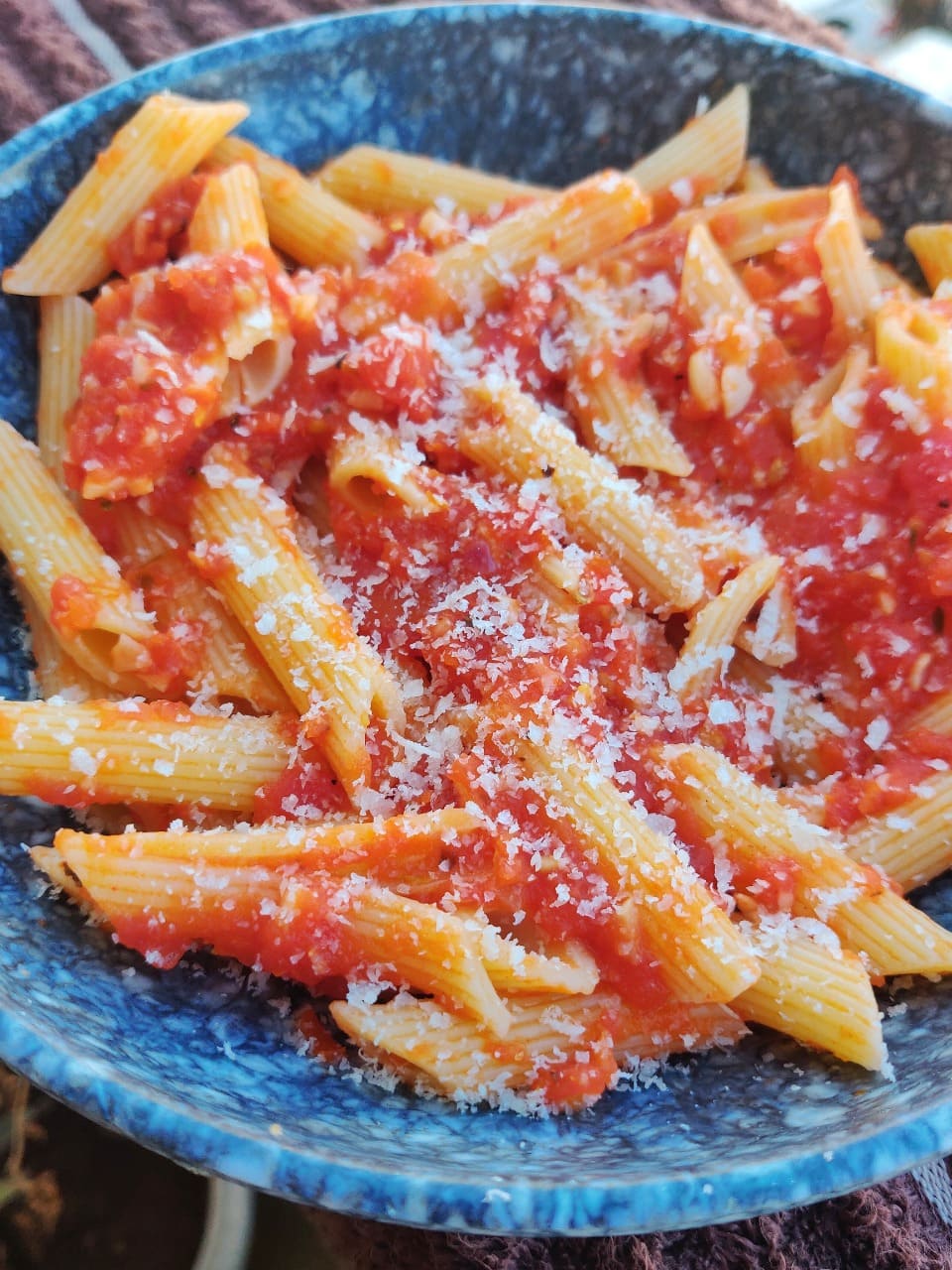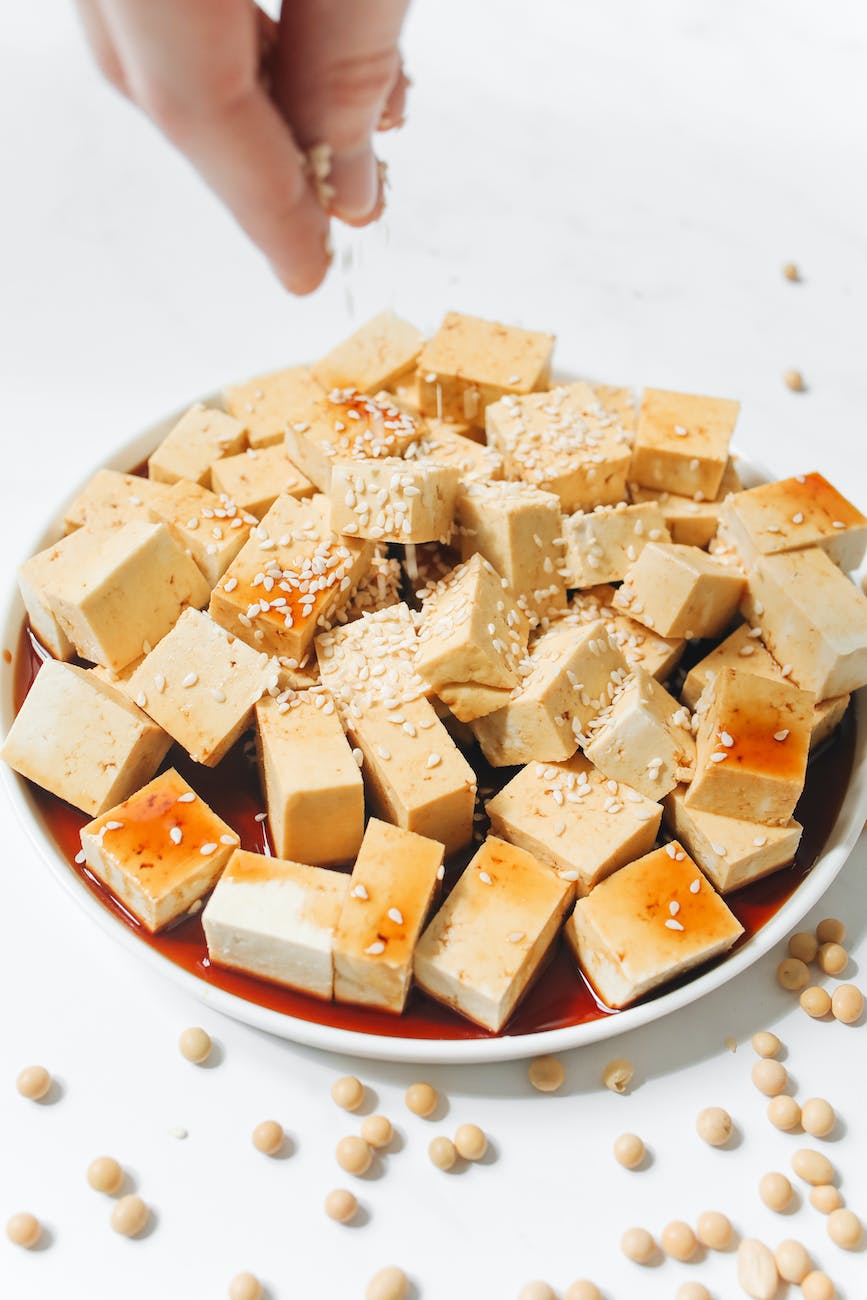
Transport yourself to the captivating flavors of Italy as you embark on a culinary journey with tofu as your main protagonist. By incorporating tofu into your Italian-inspired meal prep, you can elevate your dishes with a healthy twist while still enjoying the rich and comforting flavors of traditional Italian cuisine. Packed with protein, low in saturated fat, and brimming with versatility, tofu is a fantastic substitute for chicken that also contributes to a more sustainable and environmentally-friendly diet. 🌿🍝🥢
Let’s dive into the tantalizing world of Italian cuisine and discover these irresistible tofu-based meal prep ideas:
🍝 Tofu Bolognese: Experience the cozy and comforting embrace of a classic Bolognese sauce with a tofu twist. Begin by sautéing crumbled tofu with onions, garlic, and a medley of Italian herbs like oregano, basil, and thyme. As the tofu absorbs the flavors, add crushed tomatoes, tomato paste, and a splash of red wine to create a rich and robust sauce. Let it simmer gently until the flavors meld together, resulting in a tantalizing Bolognese sauce. Serve this savory delight over your favorite pasta or swap the pasta for zucchini noodles to keep it light and low-carb. You can make the Bolognese sauce in advance and refrigerate it, allowing the flavors to deepen and intensify, ready for a quick and effortless assembly during mealtime.
🍕 Tofu Margherita Pizza: Indulge in the timeless pleasure of a Margherita pizza by replacing the chicken with marinated tofu. Start by pre-baking a pizza crust until it turns golden and crispy. Spread a thin layer of tomato sauce, arrange slices of tofu marinated in olive oil and Italian seasonings on top, and add a generous amount of fresh mozzarella or vegan cheese. Finish off with juicy slices of tomato and fragrant basil leaves. Bake the pizza until the cheese is perfectly melted and bubbling. Slice into wedges and savor each bite of this delicious fusion of flavors. To make the process even easier, prep the tofu and pre-bake the crust in advance, ensuring a quick and enjoyable pizza-making experience.
🥗 Caprese Tofu Salad: Experience the simplicity and elegance of a Caprese salad with a tofu twist. Arrange slices of tofu, ripe tomatoes, and fresh basil leaves on a platter, capturing the essence of summer. Drizzle with balsamic glaze and a touch of olive oil to enhance the flavors. The tofu acts as a protein-packed substitute for traditional mozzarella, adding a delightful texture and depth to the salad. This dish requires minimal preparation, making it perfect for a light and refreshing meal option. Serve alongside a crusty bread to complete the Italian experience.
🍲 Tofu Minestrone Soup: Warm your soul with a hearty bowl of tofu-infused Minestrone soup. Begin by sautéing tofu cubes until they turn golden and set them aside. In a pot, combine vegetable broth, diced tomatoes, an assortment of colorful vegetables such as carrots, celery, zucchini, and bell peppers, and a medley of Italian herbs like rosemary, thyme, and bay leaves. Allow the soup to simmer gently, allowing the flavors to meld together beautifully. Add cooked pasta and the golden tofu cubes to the soup, creating a filling and nutritious meal. Prep the tofu and chop the vegetables ahead of time for a quick and nourishing soup experience. Serve with a sprinkle of grated Parmesan or vegan cheese and a slice of crusty bread for a complete Italian feast.
🍝 Tofu Alfredo Pasta: Indulge in the creamy and luscious goodness of Alfredo pasta with a healthy twist by incorporating tofu. Start by sautéing tofu cubes until they develop a golden crust. Then, blend the tofu with soaked cashews, nutritional yeast, garlic, and vegetable broth to create a velvety Alfredo sauce. Toss the sauce with your favorite pasta and garnish with chopped fresh parsley for a burst of freshness. This dish offers all the richness and comfort of traditional Alfredo but with a lighter and plant-based touch. Prep the tofu and soak the cashews in advance for a smooth and hassle-free cooking process. Serve this dish with a side of steamed vegetables or a fresh green salad to complete the meal.
Unleash your culinary creativity and add your personal touch to these Italian-inspired meal ideas. Adjust the seasoning, experiment with different herbs and spices, and savor the joy of creating delicious, plant-based Italian dishes in your own kitchen. Don’t forget to capture your culinary triumphs and share them with us! 📸 Tag your creations with #MasalaMonk and @Masala.Monk on Instagram or Pinterest to inspire others with your delectable creations.
Save this post for future meal prep inspiration and come back to revisit these Italian-inspired tofu recipes whenever you’re craving a taste of Italy. Let’s inspire each other to embrace the delicious possibilities of plant-based cooking while promoting sustainability and healthy eating.












